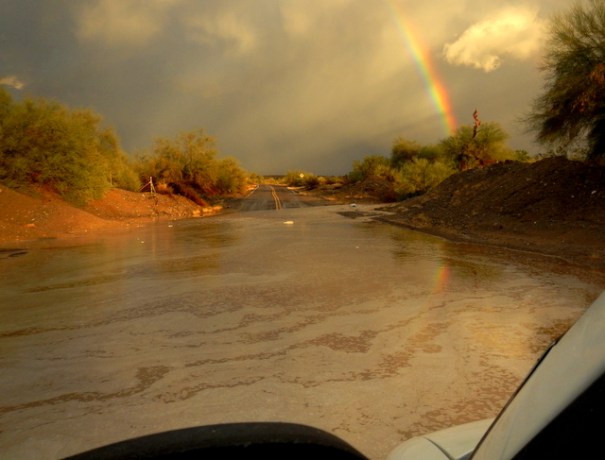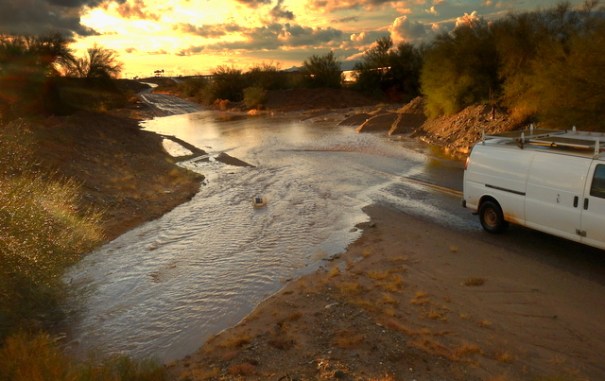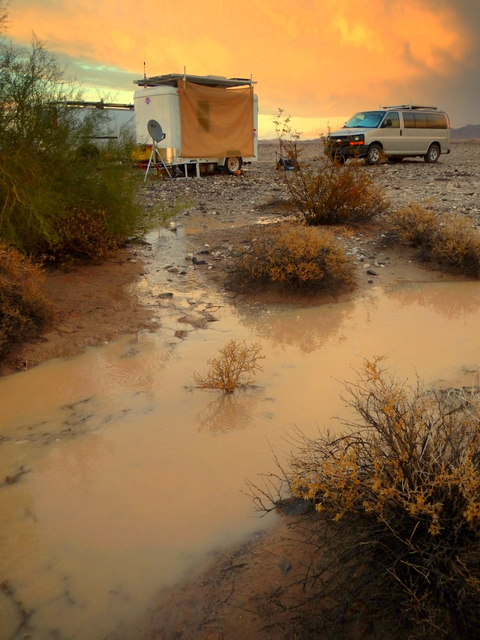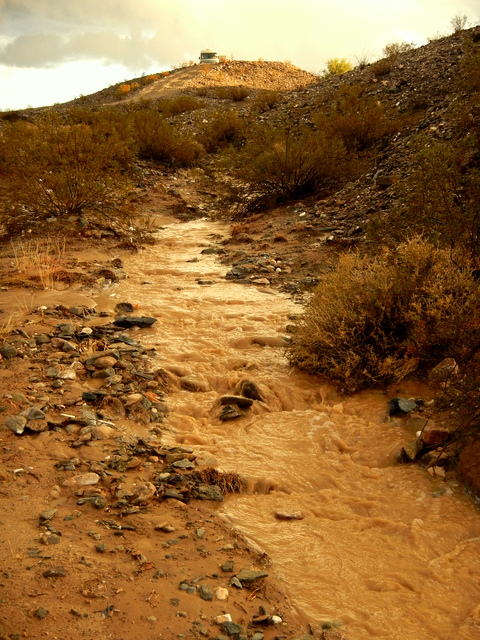bigsallysmom
Well-known member
I watched todays Zion National Park flood as it quickly spread and dragged vehicles down stream. My question is how close do you park to moving water?

highdesertranger said:in remote locations you must have a way to monitor weather reports.
in the desert areas do not camp in the sandy area of a major wash, I repeat DO NOT camp in a major wash.
keep a safe distance in elevation above the wash and keep in mind what will happen if that wash is at full flood stage.
flash floods in the desert flats are seldom more than a few feet high(but have tremendous power). so if you are 20 feet above the sandy wash you are pretty safe.
however in the desert mountains flash floods can exceed your wildest imagination, one minute the wash could have a trickle, the next it could have a torrent 20-50 feet deep carving out the canyon. that's how those boulders the size of school buses get deposited at the mouth of alluvial fans.
be safe and have a weather radio or monitor AM radio for weather reports. remember it could be sunny where you are at but in the mountains above you there could be thunder storms and we all know water like everything else flows downhill.
another thought, never try to cross a creek, stream, river, wash or any type of water way during high water, wait until the water subsides.

cyndi said:In AZ they have the *Stupid Motorist Law* an aptly named law that charges these less-than-bright drivers for the full cost of their rescue, plus a hefty penalty.
Gary68 said:you could be siting there tanning when chocolate thunder comes round the bend
TMG51 said:Are we talking about weather or about what happens when you eat one too many tacos?





GrantRobertson said:Speaking only about Tucson, AZ; That law seems to be making up for the "Stupid Government's" habit of not installing adequate drainage in known flood prone areas.
Enter your email address to join: